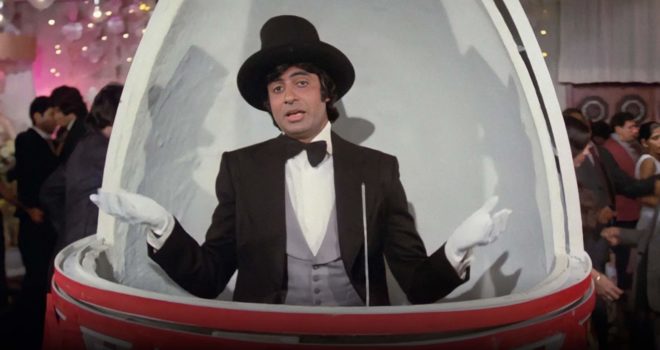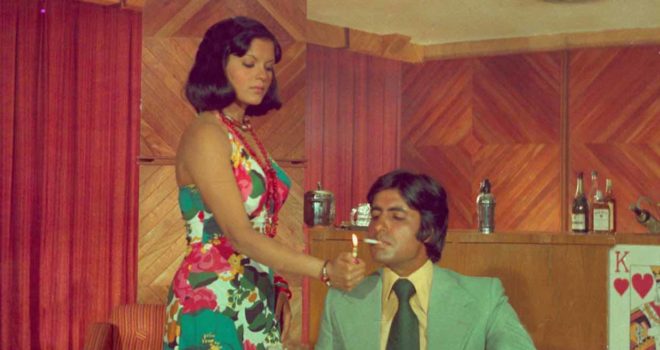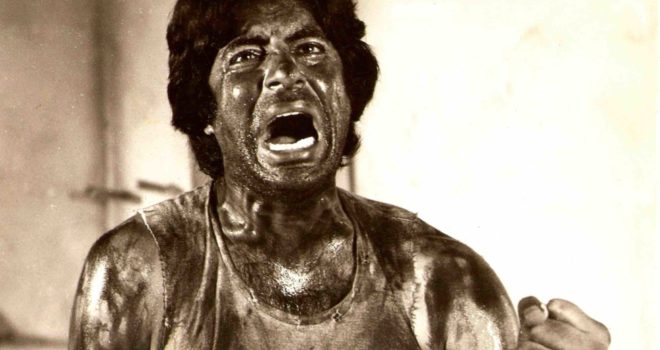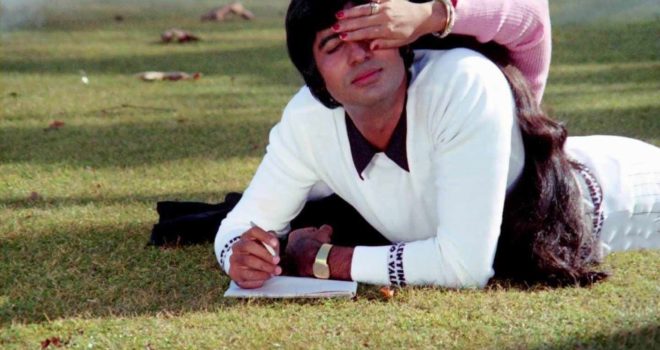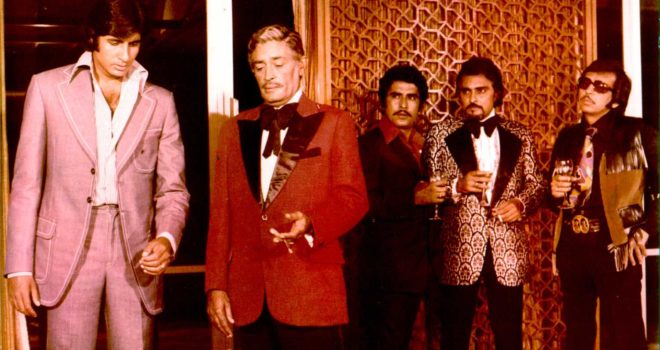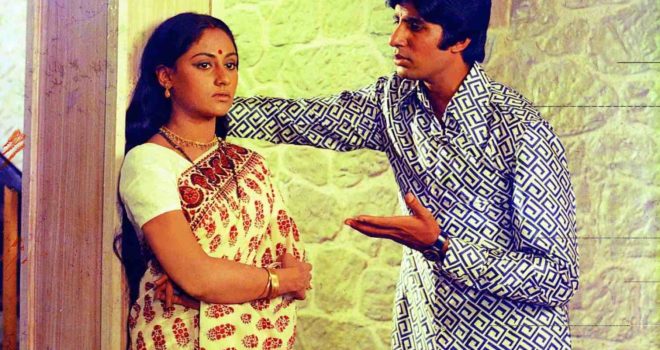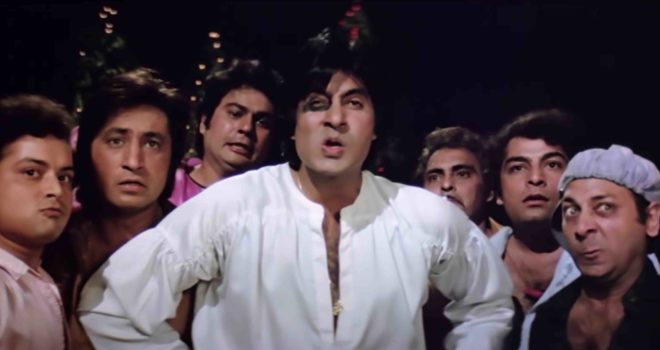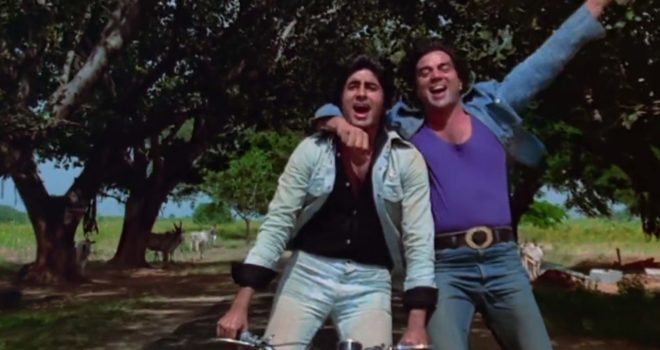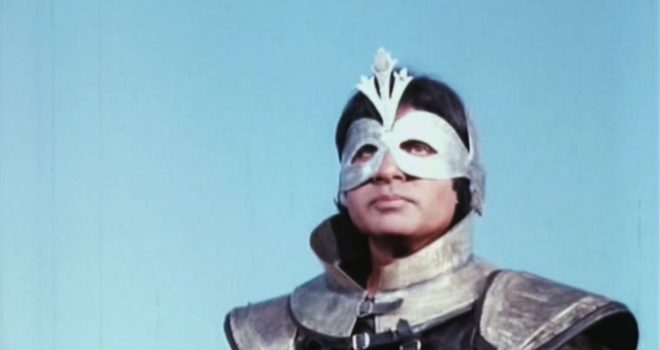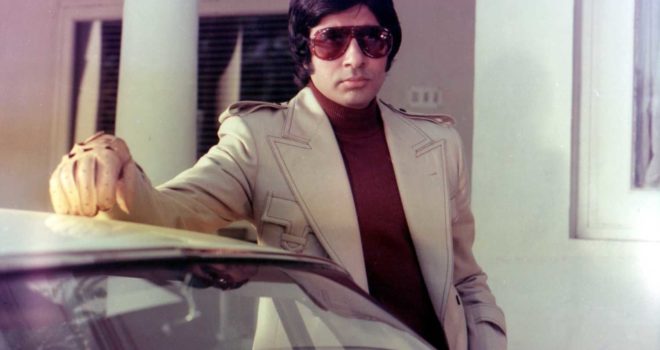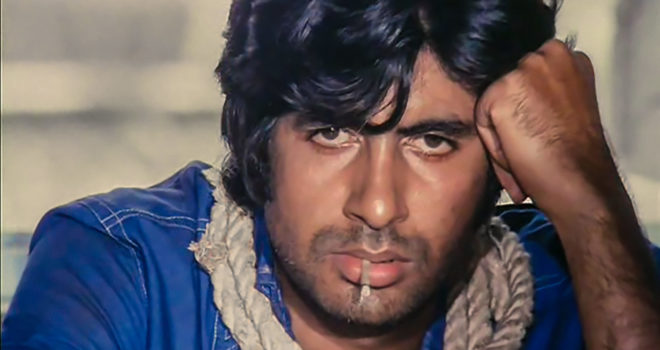
DEEWAR by Yash Chopra
More often than not, conversations of popular Indian cinema are generally limited to Bollywood and revolve around movie stars, if not superstars, rather than films. Amitabh Bachchan is one such superstar: an absolute, indisputable icon that both the BBC and Time magazine named the greatest star of the millennium. No other name sparks quite the same reaction, if only perhaps his heir apparent, Shah Rukh Khan, who couldn’t be more different to the current ‘king’ and who has shared the screen with him in several films. Amitabh Bachchan is more than an actor: he’s a living legend whose face has been plastered on the walls of every street in the Indian subcontinent for over half a century, keeping his legend alive. But why this Bachchan cult? The Festival des 3 Continents deciphers the ‘Big B’ phenomenon through nine emblematic films from a career of over 200.
Editorial – Amitabh Bachchan: Big B Forever by Shivendra Singh Dungarpur
In 1999, in a poll by the BBC, Amitabh Bachchan was voted “the greatest star of stage or screen.” In October 2003, TIME magazine hailed him as “the star of the millennium.”
In 1970, the honeymoon period post India’s independence had waned and the country was faced with widespread social and political unrest because of rising inflation, unemployment and corruption that gave rise to the population’s simmering anger in the face of government indifference. It was this sense of helplessness and rage, which Bachchan channelled on-screen to show how the weak could fight back, that catapulted him to fame in the iconic persona of the Angry Young Man. No other actor in India has that towering persona, who even half a century after his debut in 1969 continues to be as relevant to contemporary audiences, and who represents the past, the present and the future of cinema.
In a world where the moving image has been reduced to content to be consumed on demand on personal devices, the cinema of the big screen and the shared audience experience that we love are today facing a huge challenge. For Film Heritage Foundation, Mr. Bachchan’s 80th birthday on 11 October, 2022 seemed a perfect occasion not just to celebrate an icon, but also to demonstrate that his films, like the superstar himself, are ageless. We wanted to change the perception that film heritage and classic cinema should be confined to retrospectives at festivals and cultural institutions. We knew that if anyone could draw audiences back to the cinemas after the pandemic, it would be vintage Bachchan.
An actor of his stature should have a showcase on a grand scale, and so, in a first-of-its-kind festival titled “Bachchan Back to the Beginning”, we curated the biggest retrospective that showcased 11 iconic Amitabh Bachchan films from the 1970s and ‘80s and were screened from 8 to 11 October 2022 in 19 cities and 25 cinemas across India. These films showcased all the different avatars that this extraordinary actor, with his signature baritone voice, captured on celluloid. He had an exceptional ability to switch chameleon-like from anger to vulnerability, from the smouldering intense anti-hero, to the man on the street, to the lovable village yokel with impeccable comic timing.
The “Bachchan Back to the Beginning” festival became a rage in India. Most screenings were booked out and more cities and cinemas were added by public demand. And there were so many young people in the audience watching these films for the first time and enjoying them to the hilt. People in the audience were clapping, whistling, singing, dancing, crying as they immersed themselves in Bachchan mania for four days.
Film Heritage Foundation brings an eclectic selection of films from his incredible body of work of over 200 films in partnership with the Festival des 3 Continents, spanning a period from 1973 to 1982, when Mr Bachchan was at the peak of his career. One of the earliest hits of Mr Bachchan’s career, Abhimaan (Pride) (1973), a musical drama directed by Hrishikesh Mukherjee in which he plays an envious husband who cannot cope with the success of his wife, played by his wife Jaya Bachchan (née Bhaduri), has been considered by many to be one of his finest performances.
Ramesh Sippy’s 70 mm blockbuster Sholay (Embers) (1975), has been touted amongst the greatest films of Hindi cinema. The dacoit film containing elements of a Spaghetti western ran in Minerva cinema in Mumbai for five continuous years from 1975 to 1980.
The cult classic Deewaar (The Wall) (1975) directed by Yash Chopra cemented Amitabh Bachchan’s role in Hindi cinema as the Angry Young Man. The 1976 film Kabhi Kabhie (Sometimes), a romantic drama directed by Yash Chopra, reinvented the image of Amitabh Bachchan as a poet who loses his love that was a departure from the growing stereotype of the actor as a brooding hero simmering with rage and angst. Amar Akbar Anthony (1977) is a formulaic lost-and-found potboiler, directed by Manmohan Desai, that became a huge box office success. The film, in which Amitabh Bachchan plays one of three brothers separated in childhood, combines action, comedy and melodrama, through some incredible coincidences where the audience is required to suspend disbelief.
1978 saw Bachchan’s stardom at an all-time high. Yash Chopra’s Trishul (Trident) (1978) was another chapter in the hugely successful angry hero motif where Amitabh Bachchan plays a dark hero eaten up by the need for revenge, in a performance that is still remembered for its powerhouse dialogues delivered in his inimitable style, while in the stylish caper thriller Don (1978) directed by Chandra Barot, Amitabh Bachchan is remarkable in a double role as the cool sophisticated gangster Don and his doppelganger, a simpleton called Vijay. Based on the Chasnala mining disaster, Yash Chopra’s powerful film Kaala Patthar (Black Stone) (1979) featured Amitabh Bachchan as a disgraced Merchant Navy officer working as a coal miner who seeks redemption in standing up for the coal miners’ rights.
Satte Pe Satta (Seven on Seven) (1982), adapted from the 1954 American musical Seven Brides for Seven Brothers (Stanley Donen, 1954), is a treat of an action comedy. The film has Amitabh Bachchan, again in a dual role, playing the eldest of seven brothers, uncivilized bumpkins, who are set straight when he marries, as well as a killer who is his clone, out to murder a young woman.
Following the phenomenal success of “Bachchan Back to the Beginning”, Film Heritage Foundation has programmed two more blockbuster retrospectives: Dilip Kumar – Hero of Heroes and Dev Anand @100 – Forever Young, the last one covering 30 cities and 55 cinemas across the country. The tide has turned and the films of the past are slowly but surely finding their place in the present… and in the future.
Shivendra Singh Dungapur
Shivendra Singh Dungapur is a filmmaker, archivist and the Founder Director of Film Heritage Foundation.



